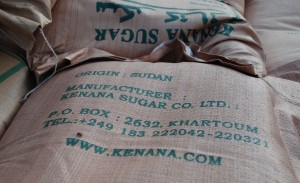By Opheera McDoom
KHARTOUM (Reuters) - Sudan's Kenana sugar company will manage more than 300,000 acres of farm land in a long-term project that aims to make Africa's largest country the bread basket of the Middle East within 10 years, officials said on Sunday.
Kenana, in a profit-sharing scheme with farmers, will improve technology, mechanise farming and irrigation and introduce new products and crops to quadruple the output of the project in one year, government ministers and company officials said.
"This is a public-private partnership to introduce a new management to government schemes," Agriculture Minister Abdel Haleem Mutafi told Reuters.
Around 350,000 acres of farmland in central and eastern Sudan would come under Kenana's care, and talks on the management of Sudan's largest Gezira agricultural scheme would begin next week, he added.
Initial investment would be $100 million in the first year, but running costs of the project would be between $100-$250 million annually, Mutafi said.
Kenana, one of the world's largest integrated sugar companies, said it would take 40 percent of profits, with 50 percent going to the farmers and 10 percent towards social schemes in the region such as building hospitals and schools.
"This is a 20 year renewable agreement," Kenana's company secretary Fareed Omer Medani told Reuters. "We are hoping to increase production to four times what it is now by next year."
Crops would include sunflowers, sorghum, maize, cotton, ground nuts and sesame, he added.
Kenana is part-owned by the governments of Sudan and Saudi Arabia and the Kuwait Investment Authority, among others.
Mutafi said Sudan could become the bread basket of the Middle East within 10 years, "with a lot of hard work and if politics goes well".
Decades of civil war and sanctions have drained the country's resources and massive agricultural projects have decayed.
Mutafi said the new scheme could cut out Sudan's imports of edible oils worth $110 million a year and achieve exports worth some $100 million within 15 months.
He said Sudan would also begin to export animal feed.
"The utilisation of Sudan's natural resources of sun, soil and water is not more than 20-25 percent at the moment," he said.
"This is why we have room for three to four-fold gains," he added. "We hope to achieve 100 percent (utilisation) in 10 years."
More than two thirds of Sudan's population work in the agricultural sector, which was the mainstay of the economy before oil production began in the 1990s.
Sudan has the Blue and White Nile rivers, heavy seasonal rains and land galore. The arid Middle East and Gulf have long eyed the agricultural potential of the war-torn nation.













